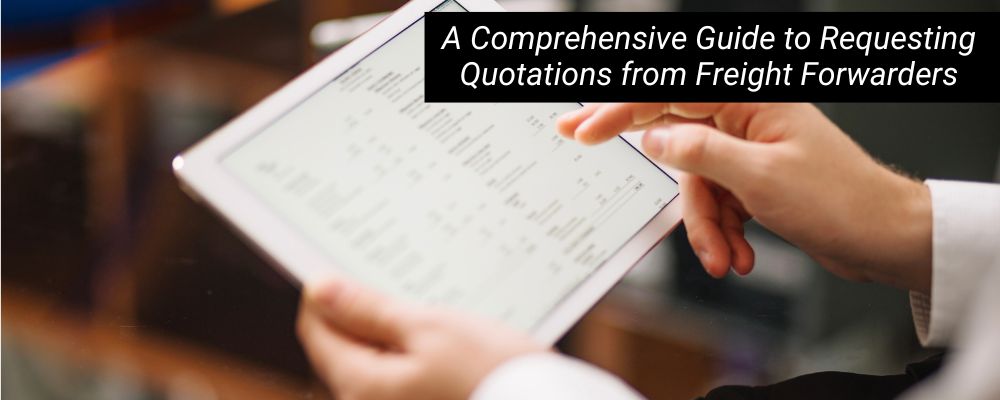
When it comes to international shipping, understanding the intricacies and necessary information required for requesting quotations is essential. In this article, we will delve into the key details that freight forwarders need in order to provide accurate and timely quotes. By following these guidelines, both shippers and forwarders can streamline the quotation process, saving time and ensuring smooth transactions.
1. Introduction to Quote Requests:
Many freight forwarders receive vague quote requests that lack crucial information needed for an accurate estimate. These requests typically involve questions like “How much does it cost to ship from Thailand to China by sea?” or “What is the cost of truck transportation from Thailand to Malaysia?” While these inquiries may seem simple at first glance, they lack specific details that are vital for calculating costs accurately.
2. Specific Ports/Airports:
To provide a precise quotation, freight forwarders require detailed information regarding the specific ports or airports involved in both the export and import countries. Without this data, it becomes challenging for them to determine transportation costs accurately.
3. Cross-Border Truck Transportation:
In cases where cross-border truck transportation is required, knowing pick-up and delivery locations is crucial. For example, if a request involves shipment from Thailand to Malaysia, specifying cities within each country helps narrow down logistics planning effectively.
4. Cargo Description:
A critical aspect often overlooked by shippers when requesting quotations is providing a detailed description of their cargo contents. Different types of goods require distinct transport methods due to varying conditions such as fragility or hazardous nature. Mentioning specifics about precision instruments versus frozen mangoes allows freight forwarders to make appropriate arrangements accordingly.
5.Cargo Size & Weight:
The size and weight of cargo play significant roles in determining transport costs accurately; thus including these details in quote requests is imperative. Sending a single pallet differs significantly from shipping equipment worth over ten containers‘ capacity. Additionally, freight forwarders need to consider the weight calculation methods for light but bulky items like cotton versus heavy but space-saving goods such as steel rolls.
6. Packaging Type:
Another crucial detail that shippers often overlook is describing the type of packaging used for their cargo, whether it’s bulk cartons, pallets, drums, or flexible bags. This information helps freight forwarders suggest suitable packing methods to ensure safe transportation and avoid damage during transit.
7.Incoterms:
Incoterms refer to internationally recognized trade terms that define each party’s responsibilities and obligations in a shipment contract. Specific Incoterms such as EXW (Ex Works), FOB (Free On Board), DDP (Delivered Duty Paid), CFR (Cost & Freight) affect shipping costs differently. Therefore, mentioning the appropriate Incoterm in quote requests assists freight forwarders in accurately calculating transportation expenses.
8.Frequency of Transportation:
The frequency of shipments also plays a role in determining cost estimates effectively; whether it involves one container transported monthly or ten containers regularly impacts negotiations with shipping companies and airlines. Higher volumes often provide leverage for better pricing options.
In conclusion, when requesting quotations from freight forwarders for international shipping needs, providing detailed and accurate information is vital for both shippers and forwarding agents alike.
By including specifics about ports/airports involved, cross-border truck transport details if applicable, cargo descriptions along with size/weight specifications, packaging types utilized, relevant Incoterms, frequency of transportation requirements, and any special considerations like encoders, both parties can streamline the quotation process.
This ensures accurate quotes are provided promptly while reducing unnecessary back-and-forth communication. Taking the time to provide comprehensive information saves valuable time for both shippers and freight forwarders, facilitating smooth transactions from start to finish.








